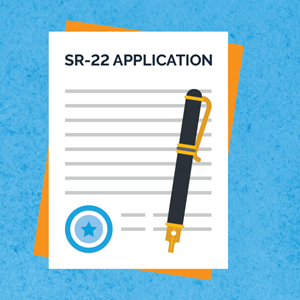SR22 insurance, otherwise recognized as a certificate of insurance or financial responsibility filing, might not be a familiar term to many. It is, however, an essential aspect of auto insurance that certain drivers should be aware of. This article aims to provide an understanding of what SR22 insurance is, why it is needed and who is typically required to have it.
What is SR22 Insurance?
An SR22 is not actual insurance, but rather, it’s a document that proves financial responsibility. Essentially, it is a form that your auto insurance company files with your state’s Department of Motor Vehicles (DMV) to verify that you carry at least the state-mandated amount of auto liability insurance. It’s a type of certification mandated by the state, usually ordered by a court, for individuals who have been convicted of certain motor vehicle-related offenses, or who have met other criteria stipulated by state law.
Though it’s commonly referred to as “SR22 insurance,” it’s not a substitute for or a type of car insurance. Rather, after being mandated for an SR22, you would need to have your insurance company provide this form to prove you have valid auto insurance coverage, in addition to your standard policy. Some states may require SR22 certification for incidents such as a DUI or DWI, reckless driving, or driving without proof of insurance, committing any of which may lead to the suspension of your driving privileges.
Why Do You Need SR22 Insurance?
SR22 Insurance typically becomes necessary following certain driving infringements. This insurance form acts as a guarantee from your insurance company to the state, ensuring that you’re maintaining the minimum required auto insurance coverage for a specified term. Most often, individuals are required to file an SR22 form following serious violations, such as being caught driving uninsured, being cited for a DUI or DWI, or involvement in an at-fault accident while uninsured.
The legal implications of not obtaining an SR22 when required can be severe, often leading to extended suspension of your driving privileges. Additionally, failing to keep up an SR22 mandatory requirement could result in heavy fines or even jail time in extreme cases. Therefore, if SR22 has been deemed necessary for you, it is critical for your legal standing, your driving privileges, and your pocketbook that you maintain it for the specified term outlined by the court or your state’s Department of Motor Vehicles.
Who Needs SR22 Insurance?
Not all drivers will need to obtain an SR22. This tends to apply to those who have been found guilty of a serious traffic offense, such as a DUI or DWI, or drivers who have committed repeated traffic offenses in a short time frame. It is also essential for individuals involved in an accident where there was significant bodily injury or death and the driver was found to be at fault.
Often, the requirement for SR22 insurance stems from instances where the driver’s behavior suggests an elevated risk to other motorists. Other common cases could include driving without insurance coverage, possession of a revoked or suspended license, or repeat offenders of minor traffic violations. The aim of SR22 insurance is to ensure that these high-risk drivers maintain the minimum required insurance.
How to Obtain SR22 Insurance
Obtaining SR22 insurance is a relatively simple process, but it does involve a few steps. First, you’ll need to contact your auto insurance provider. If they offer SR22 insurance, they will add it to your existing auto policy and then file the SR22 form with the state on your behalf. If your current provider does not offer SR22 insurance, you will have to shop around for an insurer that does. It is essential to make this filing promptly following a court order or a state’s directive not to risk any penalties.
You should also note that carrying SR22 might increase your insurance premiums. Since SR22 is usually required for high-risk drivers, insurance companies may charge a higher rate due to the increased risk associated with insuring you. However, the increased cost varies and depends on various factors, including your age, driving history, and the state you live in. The length of time you’re required to maintain SR22 insurance varies by state but is typically three years. It’s important to keep your policy active during this period. If your policy is canceled or lapses, your provider is obligated to notify the state, which could result in the suspension of your driving privileges.
The Impact of SR22 Insurance on Your Driving Record
Having an SR22 form attached to your insurance can impact your driving record, but it’s not the SR22 itself that affects it adversely. Instead, it’s the driving violation that led to the need for an SR22 that often carries negative implications for your driving record. These violations can include severe offenses such as DUIs, serious accidents, or driving without adequate insurance. Your driving record reflects these offenses and may result in earning a high-risk driver status, thereby increasing your insurance premiums.
While having an SR22 does indicate a past issue with driving responsibility, maintaining your required insurance during the SR22 period can help rebuild your driving credibility. It’s important to note that if your SR22 insurance lapses or cancels, your insurance company must inform your state’s DMV, potentially leading to further complications like a reinstated suspension. Hence, maintaining and successfully fulfilling your SR22 obligation can steer your record back towards positive, demonstrating your commitment to responsible driving behavior.
It’s hoped that most individuals will never encounter the need for an SR22, however it’s still important for all drivers to understand what it is and how it works. Recognizing its importance is a part of being a knowledgeable motorist, aware not just of the privileges afforded by driving, but also the responsibilities it entails. Should you ever need an SR22 insurance due to a traffic violation or a serious driving offense, being well-informed could save you from unnecessary complications or legal trouble later on.

